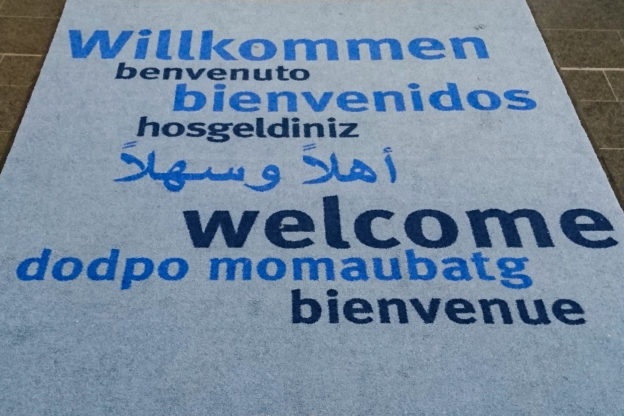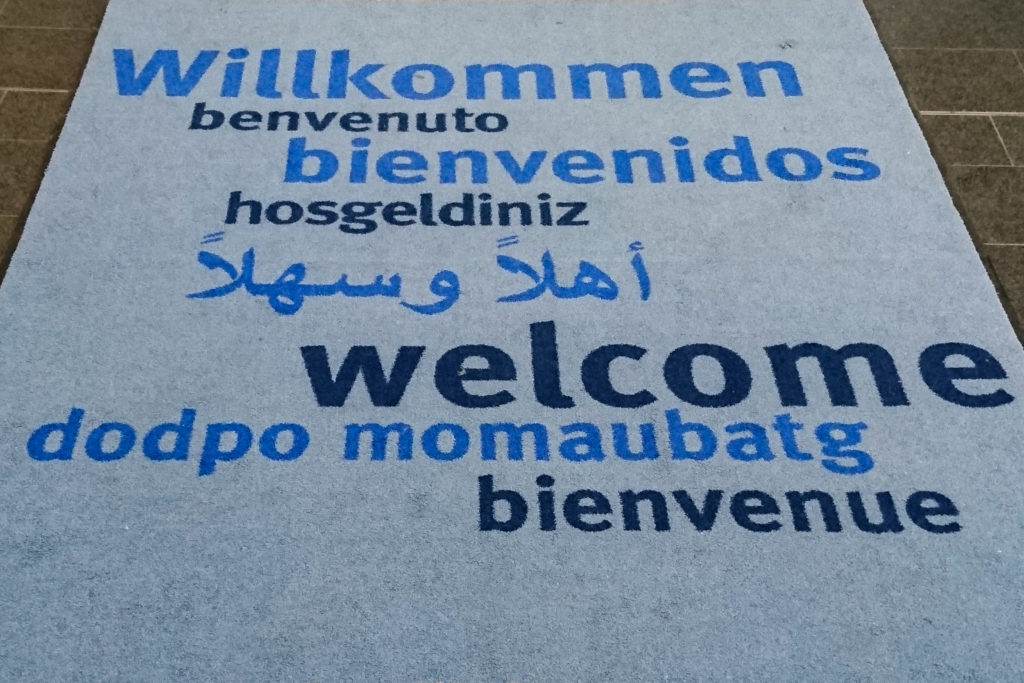This is a list of the commissioners of the von der Leyen Commission, the European Commission in office from 1 December 2019. For each commissioner, the name is given in the original script and, if need be, in Latin transcription. The portfolio and the country of origin are given in English. Each name was transcribed using the symbols of the International Phonetic Alphabet (IPA): The first transcription indicates the pronunciation as it can be heard in the country of origin of the commissioner. Where applicable, German and English approximations of the original pronunciation are suggested.
I would not have been able to compile this list without the help of many others. Thanks to all of them! All remaining errors are mine, of course. Corrections, suggestions or suggestions of corrections are highly welcome. Some additional information on the transcriptions can be found below the list.
Ursula von der Leyen
President | 🇩🇪 Germany
Original pronunciation: [ˌʊʁzula ˌfɔn ˌdeːɐ̯ ˈlaɪ̯ən] or [ˈfɔn ˌdeːɐ̯ ˌlaɪ̯ən]
English pronunciation: [ˌɜːʳsjələ ˌvɒn ˌdəʳ ˈlaɪ̯ən] or [ˈvɒn ˌdəʳ ˌlaɪ̯ən]
Frans Timmermans
Climate Action (Executive Vice President) | 🇳🇱 The Netherlands
Original pronunciation: [ˌfɾɑns ˈtɪmɚmɑns]
English pronunciation: [ˌfɹæns ˈtɪməʳmənz]
German pronunciation: [ˌfʁans ˈtɪmɐmans]
Margrethe Vestager
Competition (Executive Vice President) | 🇩🇰 Denmark
Original pronunciation: [mɑˌɡ̊ʁeːˀd̥ə ˈʋɛstæːˀɐ]
English pronunciation: [məʳˌɡɹeɪ̯tə ˈvɛsteɪ̯əʳ]
German pronunciation: [maɐ̯ˌɡʁeːtə ˈʋɛstɛːɐ]

